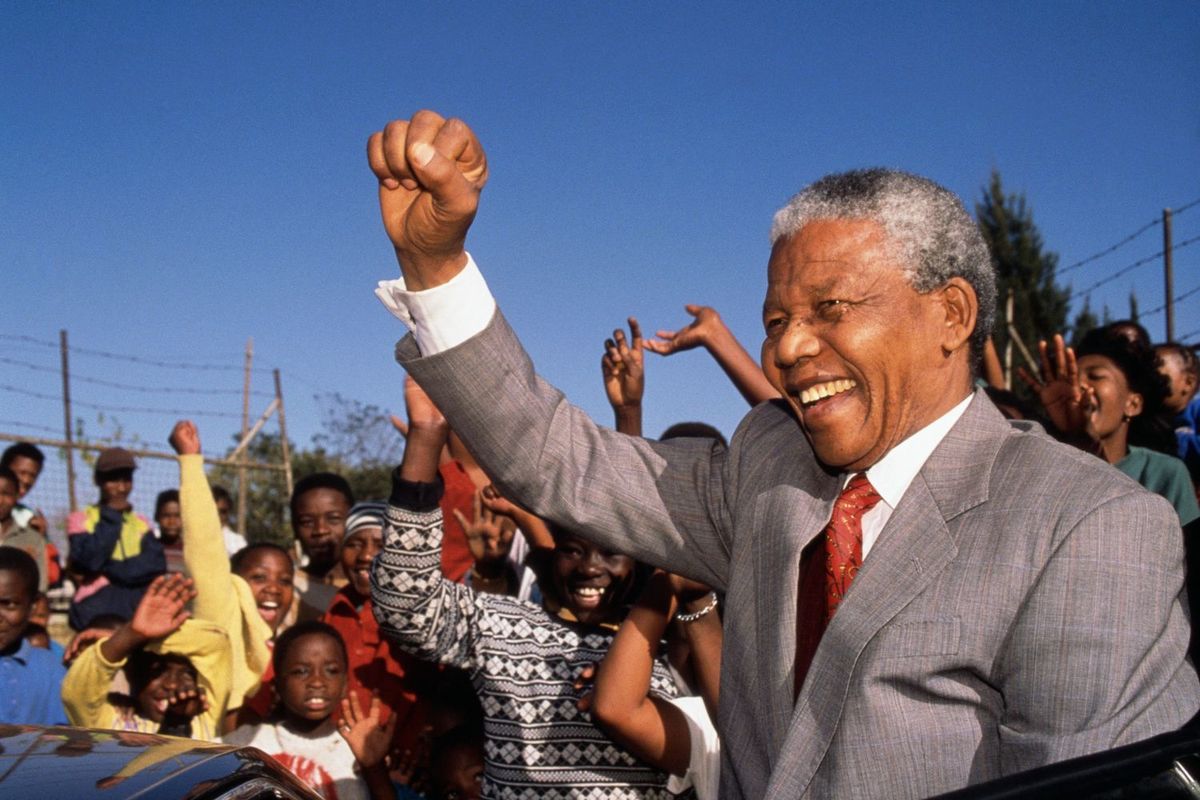Is Mandela Day Still Relevant to South African Youth Today?
Amid rising disillusionment, young South Africans are finding new ways to honor Nelson Mandela’s legacy.

Mandela Day is commemorated on July 18th, the former president’s birthday.
It’s been over a decade since former South African President and global icon Nelson Mandela passed away. Every year on his birthday, 18 July, South Africans, and everyone around the world, are asked to dedicate 67 minutes of their time to helping others. The number marks the years Mandela spent in service — from his early legal work in Johannesburg and underground activism, to his imprisonment on Robben Island alongside other stalwarts of the liberation struggle.
This year, Mandela Day arrives during a particularly volatile moment in the country. Just last week, Lieutenant General Nhlanhla Lucky Mkhwanazi publicly accused Police Minister Senzo Mchunu and other senior officials of disbanding a task team investigating political assassinations in KwaZulu-Natal, and of concealing evidence. These are serious allegations, with the potential to shake national politics. In response, President Cyril Ramaphosa has ordered the formation of a commission of inquiry.
All this unfolds against a backdrop of deepening instability. The Government of National Unity is fragile, always one disagreement away from collapse. In Mandela’s home province, the Eastern Cape, recent floods have resulted in deaths and left communities reeling. At the same time, budget cuts to key health programmes are raising alarms about the state’s ability to care for its people.
OkayAfrica took to the streets to speak to young South Africans about their thoughts and feelings about Mandela Day. For Sivenathi, a student at the University of the Western Cape, the day represents “the effort and progress made towards addressing the injustices of the past.”
She continues: “It also poses a solution for us to work together towards addressing those injustices, and taking a collaborative and bottom-up approach to addressing the issues we face as a society because of our past.”
Buhlebethu Magwaza (31) agrees. As the project lead at Youth Capital, a campaign advocating for key policy changes to solve youth unemployment, she recognises the urgency of a youth locked out of employment opportunities. She plans to spend Mandela Day helping young people format their resumes and with reading and comprehending job descriptions. For her, the day is about “collective action.”
“It’s about what you can do with your community to give back. It’s about being courageous, it’s about unity, and doing something for someone. Mandela was really about nation building and what we can do to ensure that everyone contributes to a better South Africa, continent, and even the world,” she says.
Compassion and courage are two values of the revered former statesman that she still abides by today. “To solve today’s development problems, we need to be courageous. In the same breadth, we need to be compassionate; people are going through a lot. We need to remember that we exist within our communities; therefore, we must remember to always be kind in whatever we do,” she says.
The legacy of the man, however, has not gone unquestioned. For many, Mandela’s vision of a “rainbow nation” feels increasingly out of step with South Africa’s present-day realities. The post-apartheid promise of equality and justice remains unfulfilled for millions. Rising inequality, corruption, unemployment, and deep mistrust in political leadership have led some to view Mandela Day as symbolic at best, performative at worst.
But Magwaza reckons the day is still relevant.
“Especially in a world that is going through so much,” she says. “It’s always important that you give back. You go back to communities, see what can be done, and how you can contribute. As someone who works in the youth unemployment space, I think now more than ever we need to pull together to come up with solutions,” she says.
Thapelo Tapala (13), a student, learnt that fighting for one’s rights is important while being taught about Mandela in school. But he doesn’t think that people nowadays pay attention to the day. To his generation, Mandela represents freedom. “We’re young people who need our rights and our freedom,” he says. His cousin Anesu (15) agrees that young people don’t really pay attention to Mandela Day anymore. “I think it’s just another day for them. He does mean a lot to us, even though we don’t really show it in anything we do. He fought for our freedom, and that is why we are where we are now,” he concludes.
- The Nelson Mandela Playlist: A Life In Music ›
- South Africans Remember Nelson Mandela's Historic Release from Prison ›
- A Tribute To Nelson Mandela, The Revolutionary ›
- How to Celebrate Mandela Day from Wherever You Are in the World ›
- Nelson Mandela International Day: A Global Tribute to the Legacy of a Hero ›
- Nelson Mandela Tributes: Top 10 Mandela Day Music Moments ›

